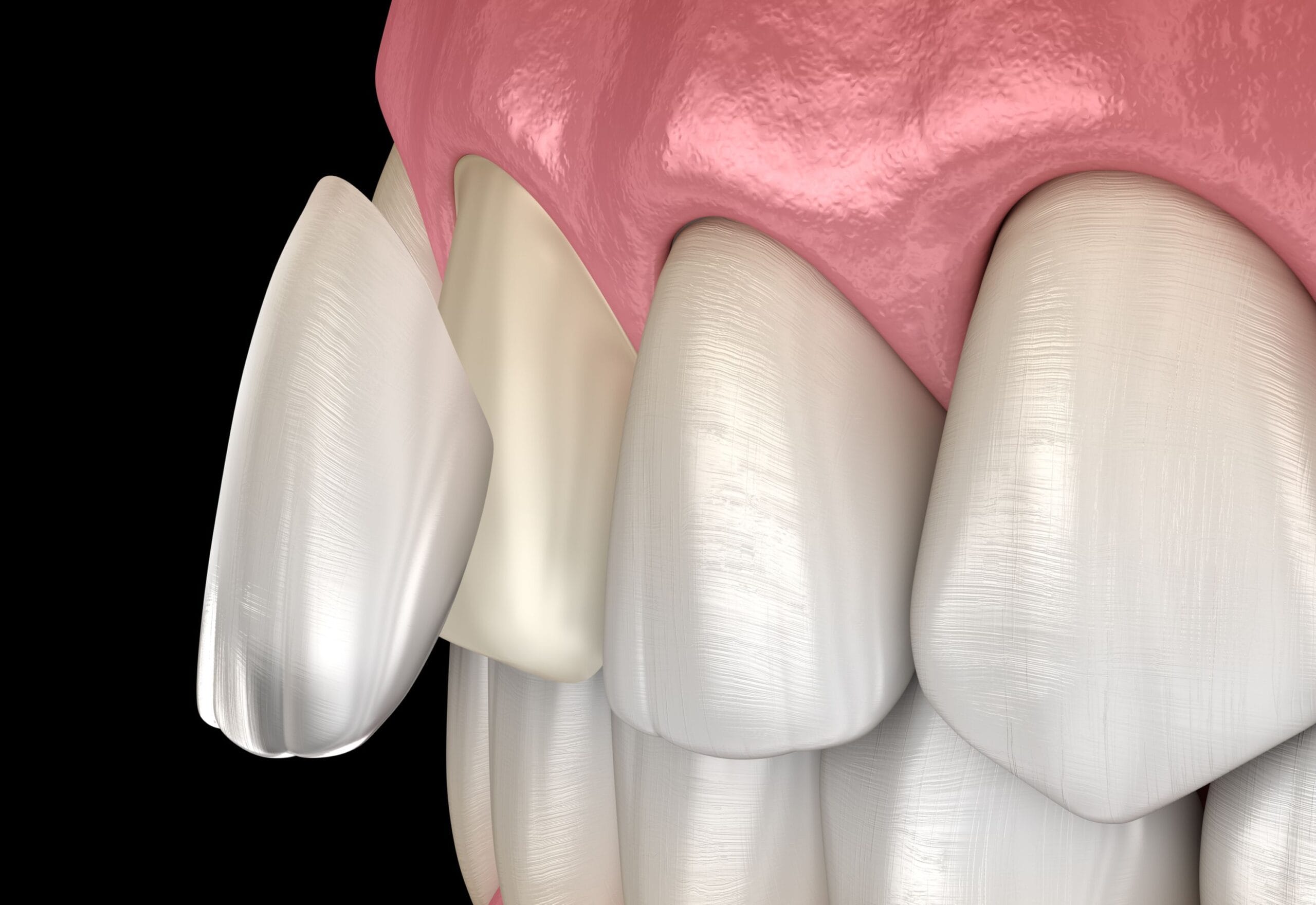Dental veneers are gaining popularity as a sought-after solution for those looking to enhance their smiles, with nearly 70% of adults considering cosmetic dental procedures in 2025. If you’re among those seeking a stunning smile but are unsure about the costs and financing options available, you’re not alone. Understanding the various types of veneers and their associated expenses can feel overwhelming, but it doesn’t have to be.
This article promises to guide you through the cost landscape of dental veneers in 2025, detailing different types, financing strategies, and the potential return on investment (ROI) you can expect. By the end, you’ll have a clearer picture of how to achieve your dream smile without breaking the bank. Ready to embark on this journey toward a radiant smile? Let’s get started!
Dental Veneer Types: A Comprehensive Pricing and Quality Analysis
Porcelain Veneers: The Premium Smile Transformation

Pricing and Investment
- Cost Range: $925 – $2,500 per tooth
- Full Mouth Investment: $7,200 – $20,000
- Durability: 10-15 years with meticulous maintenance
Advanced Characteristics
- Exceptional aesthetic quality mimicking natural tooth translucency
- Highly stain-resistant ceramic surface
- Minimal tooth sensitivity
- Superior light-reflecting properties
- Precision-crafted in dental laboratories
Composite Resin Veneers: Affordable Aesthetic Solution

Economic Pricing Structure
- Cost Range: $250 – $1,500 per tooth
- Full Mouth Investment: $2,000 – $12,000
- Durability: 5-7 years
Distinctive Advantages
- Budget-friendly cosmetic option
- Streamlined single-visit application
- Simplified repair and replacement process
- Minimal tooth preparation required
- Ideal for patients with budget constraints
Specialized Veneer Options
Lumineers: Ultra-Minimal Intervention
- Cost Range: $800 – $2,000 per tooth
- Ultra-thin ceramic design (0.2-0.3mm thickness)
- Minimal tooth reduction
- Reversible procedure
- Ideal for patients seeking conservative approach
Snap-On Veneers: Temporary Cosmetic Solution
- Cost Range: $250 – $1,000 for full set
- Removable and non-invasive
- Temporary aesthetic enhancement
- Perfect for special occasions or trial periods
Comparative Analysis Table
| Veneer Type | Cost per Tooth | Durability | Preparation | Aesthetic Quality |
|---|---|---|---|---|
| Porcelain | $925 – $2,500 | 10-15 years | Moderate | Excellent |
| Composite | $250 – $1,500 | 5-7 years | Minimal | Good |
| Lumineers | $800 – $2,000 | 10-20 years | Minimal | Very Good |
| Snap-On | $250 – $1,000 | 1-5 years | None | Fair |
Factors Influencing Dental Veneer Pricing: A Comprehensive Analysis
Dental veneer pricing is a complex landscape influenced by multiple interconnected factors that significantly impact the overall investment patients make in their smile transformation.
Geographic Location: The Economic Ecosystem of Dental Care
Pricing Variations by Region:
- Metropolitan areas: Higher overhead costs translate to premium pricing
- Urban centers like New York, Los Angeles: Can see prices 30-50% above national average
- Rural regions: More competitive rates due to lower operational expenses
- Regional economic factors directly correlate with dental service pricing
Dentist’s Expertise: The Professional Precision Factor
Qualitative Determinants of Cost:
- Board-certified cosmetic specialists command higher fees
- Advanced training in aesthetic dentistry increases procedural complexity
- Years of experience and proven track record influence pricing
- Specialized certifications in cosmetic dental procedures can increase cost by 15-25%
Preparatory Dental Work: The Foundation of Transformation
Complexity Factors:
- Potential additional procedures:
- Teeth whitening
- Gum contouring
- Minor orthodontic adjustments
- Complexity of dental restoration impacts overall treatment cost
- Pre-veneer treatments can add 20-40% to total procedure expense
Material Quality: The Technological Frontier
Veneer Material Spectrum:
- Premium porcelain variants:
- Enhanced translucency
- Superior durability
- Natural light-reflecting properties
- Advanced composite technologies:
- Improved bonding capabilities
- More natural appearance
- Increased resistance to staining
Cost Implications:
- High-end materials can increase per-tooth cost by up to 50%
- Technological advancements continually reshape material quality and pricing
Strategic Considerations for Patients
Key Recommendations:
- Research multiple dental providers
- Compare expertise and material quality
- Consider long-term value, not just immediate cost
- Understand the comprehensive treatment plan
- Evaluate financing options
Pro Tip: The cheapest option is rarely the most cost-effective. Prioritize quality, expertise, and long-term results when investing in dental veneers.
Comprehensive Dental Veneer Financing and Trends for 2024
Financing Strategies: Making Dental Veneers Accessible
Financing Options Breakdown:
- Dental Clinic Payment Plans
- Spread costs over 3-12 months
- Often interest-free or low-interest options
- Directly through dental practice
- Healthcare Financing Solutions
- CareCredit and specialized medical credit lines
- Promotional rates: 0% interest for 6-24 months
- Flexible credit terms tailored to medical expenses
- Tax-Advantaged Accounts
- Health Savings Accounts (HSAs)
- Flexible Spending Accounts (FSAs)
- Use pre-tax dollars for eligible dental procedures
- Potential tax savings of 10-30%
Long-Term Value Proposition
Investment Considerations:
- Psychological Benefits
- Increased self-confidence
- Improved social and professional interactions
- Potential career advancement opportunities
- Financial Strategic Value
- Minimal long-term maintenance costs
- Preventive protection against future dental complications
- Potential reduction in future dental restoration expenses
Emerging Dental Veneer Technological Trends
Cutting-Edge Innovations:
- Digital Smile Design (DSD)
- Advanced software mapping
- Personalized smile previsualization
- Patient-collaborative design process
- 3D Printing Technology
- Custom veneer fabrication
- Reduced production time
- Increased precision and customization
- Eco-Friendly Material Development
- Biodegradable veneer materials
- Sustainable dental solutions
- Reduced environmental impact
Maintenance and Care Guidelines
Preservation Strategies:
- Implement rigorous dental hygiene practices
- Use dentist-recommended non-abrasive products
- Schedule periodic professional consultations
- Utilize protective night guards
- Avoid extreme temperature variations
Market Outlook and Projections
Global Dental Veneer Market Insights:
- Projected Compound Annual Growth Rate (CAGR): 8.2% through 2028
- Increasing global aesthetic consciousness
- Technological innovations driving market accessibility
- Over 600,000 Americans obtaining dental veneers annually
Pro Tip: Prioritize quality and long-term value when considering dental veneer investments, balancing immediate costs with potential long-term benefits.
Conclusion: Making an Informed Decision
Dental veneers represent more than a cosmetic procedure—they’re a strategic investment in personal confidence and oral health. By understanding the nuanced landscape of options, costs, and financing, patients can make empowered decisions tailored to their unique needs.
Pro Tip: Always prioritize quality and long-term value over immediate cost savings when considering dental veneers.
Frequently Asked Questions
Q: Are dental veneers covered by insurance? Most insurance plans categorize veneers as cosmetic procedures, offering limited or no coverage.
Q: How long do dental veneers typically last? With proper care, porcelain veneers can last 10-15 years, while composite options range 5-7 years.
Q: Can veneers be removed? Porcelain veneers require permanent tooth modification, making the procedure irreversible.







